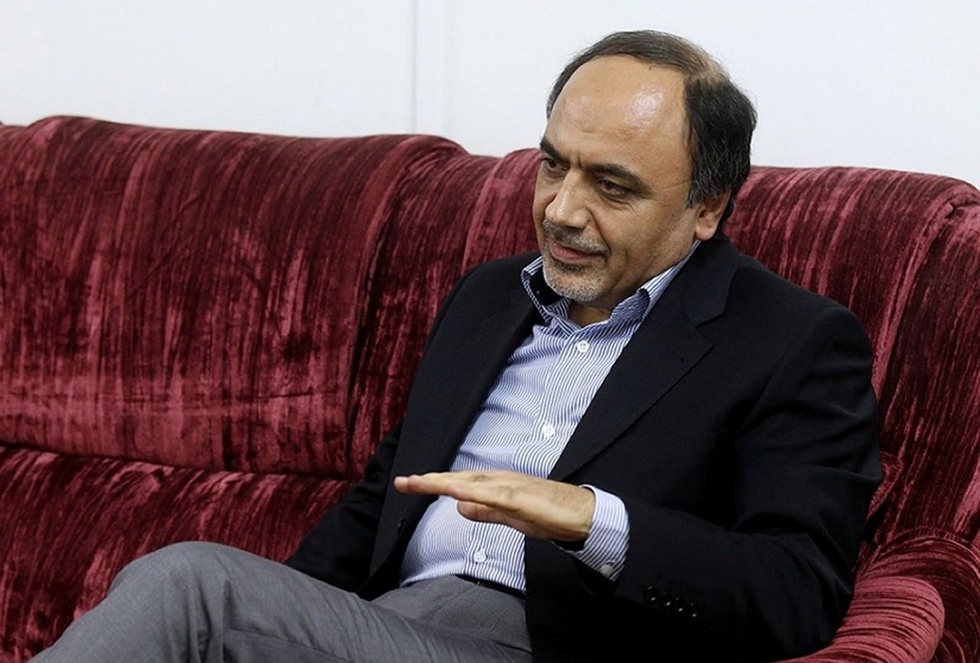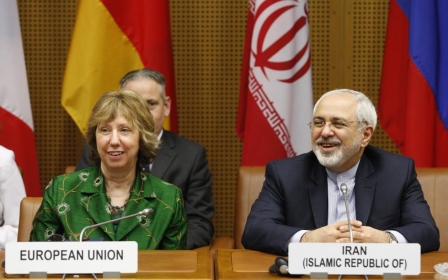Iran challenges US denial of ambassador visa

An Iranian official on Sunday said Tehran would seek international intervention in a controversy over its pick for United Nations ambassador, Hamid Aboutalebi.
Iranian Foreign Ministry Spokeswoman Marziyeh Afkham said a compliant would be lodged with global bodies against the US for barring the Aboutalebi's entry to the US, reported Fars News.
"The official mechanisms for following up the complaint have been activated and we are going to follow up the case," Afkham said.
The Iranian parliament has given a 10-day ultimatum to the government to file a lawsuit against the US at competent international bodies over Washington's refusal to issue an entry visa, reported the news agency
Washington had said on Friday that it would not grant a visa to Aboutalebi, who is accused of links to the 1979 hostage crisis, threatening to rollback a recent thaw in relations.
Tehran has said the objection is unacceptable and that they are not considering appointing an alternative candidate.
As the host government of the United Nations, the US is obliged to issue visas for diplomats who serve at the New York-based world body. It is believed Washington has never denied a visa to a UN ambassador, although Tehran withdrew its nominee once in the early 1990s.
Fierce political pressure from Congress, which has overwhelmingly passed a bill barring Aboutalebi from US soil, and where skepticism of Obama's nuclear diplomacy runs high, has put the White House in a corner.
"We have informed the United Nations and Iran that we will not issue a visa for Mr Aboutalebi," White House spokesperson Jay Carney said.
However, Carney said that there was no reason to expect that the row between Tehran and Washington over the envoy would impact progress in talks between Iran and world powers over Tehran's nuclear program.
Iran has condemned the decision and stated it is their sovereign right to designate a representative to the UN. “It is a regrettable decision by the US administration, which is in contravention of international law”, a spokesperson for Iran’s mission to the UN said on Friday.
A senior State Department official noted Tehran has time to withdraw the nomination but an Iranian minister said this was not being taken under review.
“We are not considering an alternative pick” Abbas Araqchi, deputy foreign minister, told Iranian Mehr news agency on Saturday, adding the Iranian foreign ministry will pursue the matter “through legal mechanisms at the UN”.
The episode reflects the impact the hostage crisis, in which 52 Americans were held for 444 days in Tehran, continues to have on US perceptions of Iran.
US officials did not directly give a reason for denying the visa to Aboutalebi, a veteran diplomat who currently heads Iranian President Hassan Rouhani’s political affairs bureau, but they did reference widespread media reports about his alleged involvement in 1979.
In an interview with an Iranian news site in March Aboutalebi said he was not in Tehran at the beginning of the hostage crisis and that his only involvement was to translate for the students who led the occupation of the US Embassy. But some US lawmakers have branded Aboutalebi a "terrorist" and say he should not be allowed to walk around the streets of New York with diplomatic immunity.
Democratic Senator Chuck Schumer praised the White House for its stance on the ambassador.
"Hamid Aboutalebi's nomination would have been a slap at all American victims of terrorism, not just those taken hostage in 1979," Schumer said.
UN spokesman Stephane Dujarric said Aboutalebi's fate was a matter between Tehran and Washington and said the world body had not been consulted by either side.
Social media reactions
Laura Rozen, Washington-based analyst on Iran, analysed this debate further on Twitter, highlighting ways that the crisis could be averted:
Middle East Eye propose une couverture et une analyse indépendantes et incomparables du Moyen-Orient, de l’Afrique du Nord et d’autres régions du monde. Pour en savoir plus sur la reprise de ce contenu et les frais qui s’appliquent, veuillez remplir ce formulaire [en anglais]. Pour en savoir plus sur MEE, cliquez ici [en anglais].


